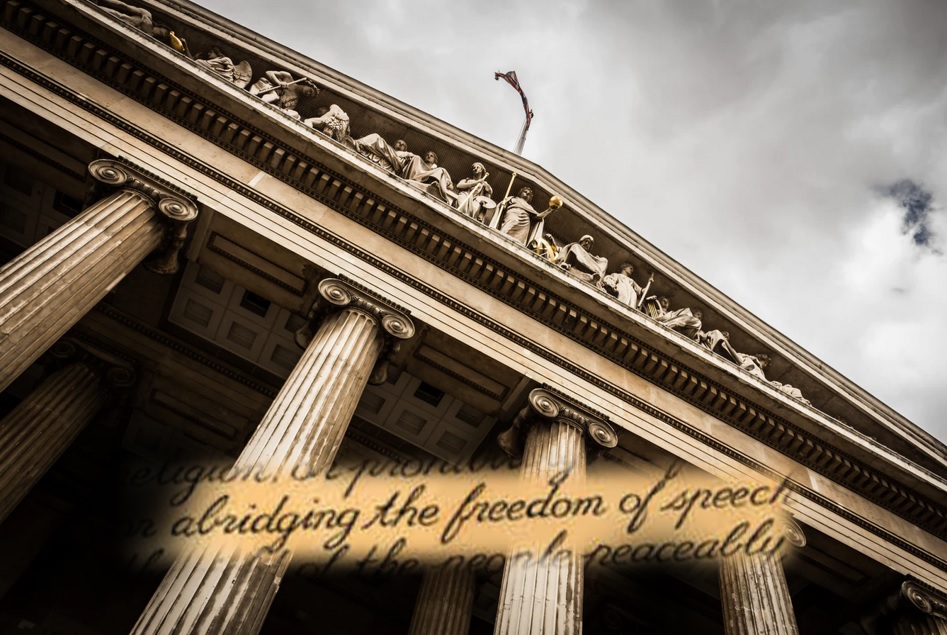The U.S. Supreme Court ruled 8-1 that a former student’s off-campus speech was protected under the First Amendment and a Pennsylvania school overstepped its constitutional bounds when it wrongfully kicked her off the cheerleading squad.
In Mahanoy Area School District v. B.L, Brandi Levy (B.L.), a 14-year-old Pennsylvania high school student at Mahanoy Area High School in Mahanoy City, failed to make the school’s varsity cheerleading squad in 2017. She posted a profanity-laden social media message expressing her frustration via Snapchat from a local convenience store on a Saturday. Another student created a screenshot of the image and showed it to her mother, who was one of the cheerleading team’s coaches. In response to the message, the school suspended Levy from the JV cheerleading team for a year. Levy and her parents appealed to school authorities to reinstate her on the cheerleading team, but they refused.
Levy and her parents filed suit against the school district in the United States District Court for the Middle District of Pennsylvania. They argued that her suspension from the cheerleading team violated the First Amendment, that the school rules she was accused of breaking were unacceptably broad and discriminated against certain viewpoints, and that the school’s rules were unconstitutionally vague. The district court granted Levy summary judgment, ruling that the school district could not regulate her Snapchat post as it was off-campus speech, and that it had not caused a “substantial disruption of the school environment.” Consequently, the district court held that the school district violated her First Amendment rights. Then the school district appealed to the United States Court of Appeals for the Third Circuit. Affirming the district court’s opinion, the Third Circuit decided that Levy did not waive her First Amendment rights by agreeing to abide by school rules, and that her post was fully protected by the First Amendment. The school district then appealed to the Supreme Court.
In the decision, Justice Stephen Breyer authored the majority opinion, upholding a lower court ruling in favor of the student and concluding that “the school’s disciplinary action violated the First Amendment…This criticism did not involve features that would place it outside the First Amendment’s ordinary protection. B. L.’s posts, while crude, did not amount to fighting words.”
The High Court’s opinion regarding First Amendment protection for off-campus speech states, “Three features of off-campus speech often, even if not always, distinguish schools’ efforts to regulate off-campus speech. First, a school will rarely stand in loco parentis when a student speaks off campus. Second, from the student speaker’s perspective, regulations of off-campus speech, when coupled with regulations of on-campus speech, include all the speech a student utters during the full 24-hour day. That means courts must be more skeptical of a school’s efforts to regulate off-campus speech, for doing so may mean the student cannot engage in that kind of speech at all. Third, the school itself has an interest in protecting a student’s unpopular expression, especially when the expression takes place off campus, because America’s public schools are the nurseries of democracy. Taken together, these three features of much off-campus speech mean that the leeway the First Amendment grants to schools in light of their special characteristics is diminished.”
In addition, the High Court stated, “It might be tempting to dismiss B.L.’s words as unworthy of the robust First Amendment protections discussed herein. But sometimes it is necessary to protect the superfluous in order to preserve the necessary.”
In Tinker v. Des Moines Independent Community School District from 1969, the Supreme Court agreed that students had the right to wear black armbands in protest of the Vietnam War. Since First Amendment protections extend to students in public schools, educational authorities who want to censor speech will need to show that permitting the speech would significantly interfere with the discipline needed for the school to function. But disruptive speech, at least on school grounds, could be punished, the High Court stated.
Liberty Counsel Founder and Chairman Mat Staver said, “This is a huge victory for the free speech rights of students in public schools, even (and especially) when they are off-campus. Students don’t shed their constitutional rights to free speech when they enter the schoolhouse gate. And they certainly don’t lay down their rights to free speech when they are off campus.”
Liberty Counsel provides broadcast quality TV interviews via Hi-Def Skype and LTN at no cost.
SOURCE Liberty Counsel
Disclaimer: Articles featured on Oregon Report are the creation, responsibility and opinion of the authoring individual or organization which is featured at the top of every article.


